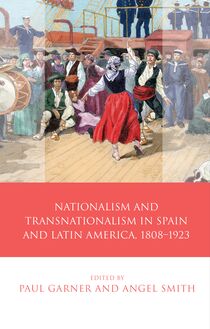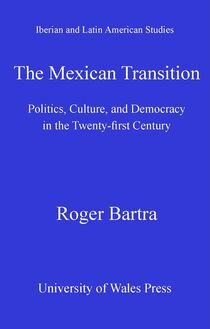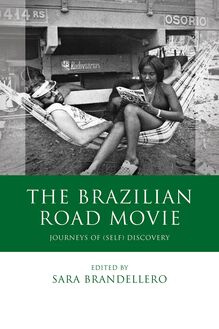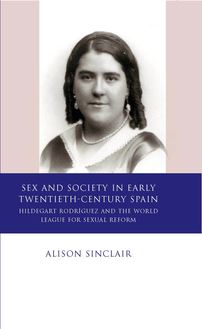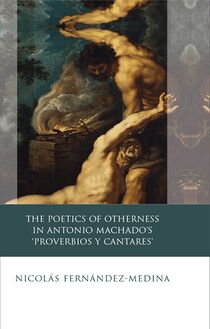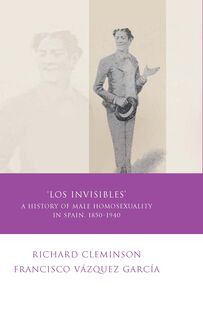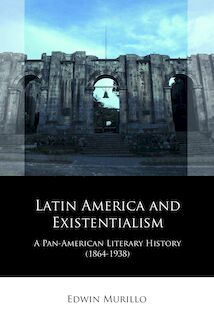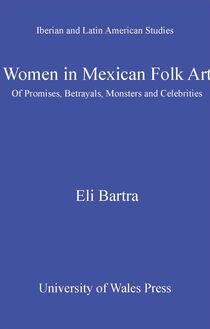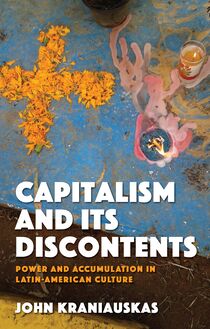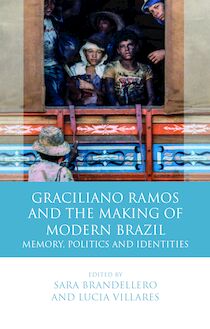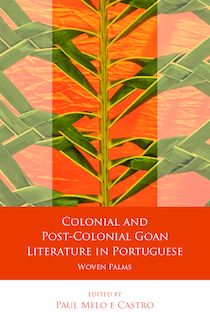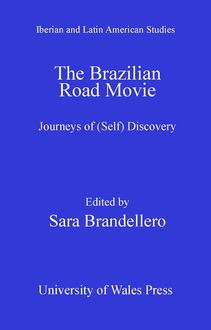Paulo Emílio Salles Gomes , livre ebook
174
pages
English
Ebooks
2018
Vous pourrez modifier la taille du texte de cet ouvrage
Obtenez un accès à la bibliothèque pour le consulter en ligne En savoir plus
Découvre YouScribe en t'inscrivant gratuitement
Découvre YouScribe en t'inscrivant gratuitement
174
pages
English
Ebooks
2018
Vous pourrez modifier la taille du texte de cet ouvrage
Obtenez un accès à la bibliothèque pour le consulter en ligne En savoir plus
Publié par
Date de parution
15 octobre 2018
Nombre de lectures
2
EAN13
9781786833259
Langue
English
Paulo Emílio Salles Gomes (1916–77) is revered in Brazil as the first ardent defender, promoter and theorist of Brazilian cinema. A film professor, critic and historian, his dedication to cinema shaped a generation of influential film critics in his home country, and set the foundations for the serious study of film in Brazil. For the first time in English, this book brings together a selection of his essays for an English-speaking audience, with detailed explanatory introductions to each section for readers unfamiliar with the context of the writings of Salles Gomes.
By blending together ruminations on global and national cinema, as well as avant-garde film and popular movies, the collection shows how the defence and promotion of a national cinema has been forged through dialogues with international trends, informed by commercial influences, and shaped by global and national political contexts. The book thus introduces readers to the international dimensions of Salles Gomes’s engagements with film, and in doing so reassesses the locatedness of his formulations on national cinema and signals their international dimensions.
Acknowledgements
List of Sources
List of Illustrations
Preface
Foreword
Introductory Essay
Part One: Social and Cinematic Engagements
Part Two: Foreign Dialogues
On Hollywood
On Soviet and European Cinema
Part Three: National Cinema
On Brazilian Cinema
For a National Cinema
Bibliography
Filmography
Publié par
Date de parution
15 octobre 2018
Nombre de lectures
2
EAN13
9781786833259
Langue
English
IBERIAN AND LATIN AMERICAN STUDIES
Paulo Emílio Salles Gomes
Series Editors
Professor David George (Swansea University)
Professor Paul Garner (University of Leeds)
Editorial Board
David Frier (University of Leeds)
Lisa Shaw (University of Liverpool)
Gareth Walters (Swansea University)
Rob Stone (University of Birmingham)
David Gies (University of Virginia)
Catherine Davies (University of London)
Richard Cleminson (University of Leeds)
Duncan Wheeler (University of Leeds)
Jo Labanyi (New York University)
Roger Bartra (Universidad Nacional Autónoma de México)
Other titles in the series
The Tlatelolco Massacre, Mexico 1968, and the Emotional Triangle of Anger, Grief and Shame: Discourses of Truth(s)
Victoria Carpenter
The Darkening Nation: Race, Neoliberalism and Crisis in Argentina
Ignacio Aguiló
Catalan Culture: Experimentation, creative imagination and the relationship with Spain
Lloyd Hughes Davies, J. B. Hall and D. Gareth Walters
Catalan Cartoons: A Cultural and Political History
Rhiannon McGlade
Revolutionaries, Rebels and Robbers: The Golden Age of Banditry in Mexico, Latin America and the Chicano American southwest, 1850–1950
Pascale Baker
Teresa Margolles and the Aesthetics of Death
Julia Banwell
Galicia, A Sentimental Nation
Helena Miguelez-Carballeira
The Brazilian Road Movie
Sara Brandellero
IBERIAN AND LATIN AMERICAN STUDIES
Paulo Emílio Salles Gomes
On Brazil and Global Cinema
Edited by MAITE CONDE AND STEPHANIE DENNISON
© The Contributors, 2018
All rights reserved. No part of this book may be reproduced in any material form (including photocopying or storing it in any medium by electronic means and whether or not transiently or incidentally to some other use of this publication) without the written permission of the copyright owner. Applications for the copyright owner’s written permission to reproduce any part of this publication should be addressed to the University of Wales Press, University Registry, King Edward VII Avenue, Cardiff CF10 3NS.
www.uwp.co.uk
British Library CIP A catalogue record for this book is available from the British Library.
ISBN 978-1-78683-323-5
e-ISBN 978-1-78683-325-9
The right of The Contributors to be identified as authors of this work has been asserted in accordance with sections 77 and 79 of the Copyright, Designs and Patents Act 1988.
The publisher has no responsibility for the persistence or accuracy of URLs for any external or third-party internet websites referred to in this book, and does not guarantee that any content on such websites is, or will remain, accurate or appropriate.
Cover image: Paulo Emílio Salles Gomes © Acervo Cinemateca Brasileira, Secretaria do Audiovisual do Ministério da Cultura.
Contents
Series Editors’ Foreword
Acknowledgements
List of Sources
List of Illustrations
Preface
Foreword
Introductory Essay: Paulo Emílio Salles Gomes, Cinema and Cinephilia
Part I: Social and Cinematic Engagements
Introduction
Declaration
Commentary
A Time of Pessimism
Platform for a New Generation
Start of a Conversation
A Century of Film
Unnecessary Intellect
Part II: Foreign Dialogues
Introduction
On Hollywood
The Long Voyage Home
Against Fantasia
Citizen Kane
Orson Welles: The Brazilian Adventure
Hitchcock’s Mutations
Independence and Money
Is Chaplin Cinema?
Mythology and Truth
On Soviet and European Cinema
Jean Vigo: Zéro de Conduite
Eisenstein’s Thinking
The Other Side of Jean Renoir
The Ideology of Metropolis
A Religious Adventure
The Critic André Bazin
Battleship Potemkin and October
Cinema and Prostitution
Revolution, Cinema and Love
Part III: National Cinema
Introduction
On Brazilian Cinema
Mauro and Two Other Great Directors
The Good and the Bad in Khouri
Compensated Nudity
A Healthy Orgy
On the Banks of Ipiranga
The Secret of the Man Critics Never Praised: Mazzaropi
The Three Gunslingers
Glauber
For a National Cinema
Paulo Emílio: A Brazilian Film Critic
A Colonial Situation?
Cinema: A Trajectory within Underdevelopment
The Social Expression of Documentary Films in Silent Brazilian Cinema
Exhibitors
The Cinematheque and Obstinacy
The Latin American Situation
Bibliography
Filmography
Notes
Series Editors’ Foreword
Over recent decades the traditional ‘languages and literatures’ model in Spanish departments in universities in the United Kingdom has been superseded by a contextual, interdisciplinary and ‘area studies’ approach to the study of the culture, history, society and politics of the Hispanic and Lusophone worlds – categories that extend far beyond the confines of the Iberian Peninsula, not only in Latin America but also to Spanish-speaking and Lusophone Africa.
In response to these dynamic trends in research priorities and curriculum development, this series is designed to present both disciplinary and interdisciplinary research within the general field of Iberian and Latin American Studies, particularly studies that explore all aspects of Cultural Production (inter alia literature, film, music, dance, sport) in Spanish, Portuguese, Basque, Catalan, Galician and indigenous languages of Latin America. The series also aims to publish research in the History and Politics of the Hispanic and Lusophone worlds, at the level of both the region and the nation-state, as well as on Cultural Studies that explore the shifting terrains of gender, sexual, racial and postcolonial identities in those same regions.
Acknowledgements
We are grateful to the following experts on the work of Paulo Emílio who provided us with advice in the early stages of this project: Carlos Augusto Calil, Walnice Nogueira Galvão, Randal Johnson, Adilson Inácio Mendes and Ismail Xavier. We also had the opportunity to discuss the collection and Paulo Emílio’s work with Randal Johnson and Kleber Mendonça Filho at a conference organised by the Wexner Center for the Arts at The Ohio State University in February 2017. Many thanks to both Randal and Kleber for their engagements with the project and also to Wexner for organising the event. We would like to thank staff at the Cinemateca Brasileira in São Paulo, particularly Alexandre Miyazato for providing us with supporting materials for the project. Thanks to Amber Rose McCartney for her fresh and thoughtful translations of Paulo Emílio’s work and also to Imogen Folland for her editorial assistance. We appreciate the ongoing support of our colleagues within the Faculty of Modern and Medieval Languages at the University of Cambridge and the School of Languages, Cultures and Societies at the University of Leeds, and we acknowledge our institutions’ support. Many thanks to Paulo Emílio’s family and also to Jordi Roca and Lúcia Riff for their support and help with this project. In no particular order, our thanks also go to the following people: Lúcia Nagib for her enthusiasm and strong support for the volume; Colin Jones for copy- editing assistance; and Catherine Benamou for advising on Orson Welles’ It’s All True . Finally, many thanks to David Filipi of the Wexner Center for the Arts at The Ohio State University for providing us with the initial inspiration for this project and for his continued support throughout it.
List of Sources
The essays included in this collection were originally written for and published in newspapers and journals as listed below. Most are published here for the first time in English and were translated by Amber Rose McCartney, unless otherwise indicated.
Declaration (Declaração: Clima , July/August 1942)
Commentary (Comentário: Clima , April 1943)
A Time of Pessimism (O tempo do pessimismo: Suplemento literário, 1957)
Platform for a New Generation (Plataforma da nova geração: published as a manifesto, 1945)
Start of a Conversation (Começo de conversa: Brasil, Urgente , 1963)
A Century of Film (Cinema no século: Jornal do Brasil , 1970)
Unnecessary Intellect (Desnecessidade da inteligência: Suplemento literário, 1957)
The Long Voyage Home ( Clima , 1941)
Against Fantasia (Contra Fantasia : Clima , 1941)
Citizen Kane ( Citizen Kane : Clima , 1941)
Orson Welles: The Brazilian Adventure (A aventura brasileira: Suplemento literário , 1957)
Hitchcock’s Mutations (As mutações de Hitchcock: Suplemento literário, 1957)
Independence and Money (Independência e dinheiro: Suplemento literário, 1958)
Is Chaplin Cinema? (Chaplin é cinema?: Suplemento literário, 1965)
Mythology and Truth (Mitologia e verdade: Suplemento literário, 1958)
Jean Vigo: Zéro de Conduite ( Jean Vigo , translated into English from French by Paulo Emílio Salles Gomes, 1971)
Eisenstein’s Thinking (O pensamento de Eisenstein: Suplemento literário, 1957)
The Other Side of Jean Renoir (A outra face de Jean Renoir: Suplemento literário, 1958)
The Ideology of Metropolis (Ideologia de Metrópolis : Suplemento literário, 1959)
A Religious Adventure (Uma aventura religiosa: Suplemento literário, 1958)
The Critic André Bazin (O crítico André Bazin: Suplemento literário, 1959)
Battleship Potemkin and October ( Potemkin e Outubro : Suplemento literário, 1962)
Cinema and Prostitution (Cinema e prostituição: Suplemento literário, 1961)
Revolution, Cinema and Love (Revolução, cinema e amor: Suplemento literário, 1961)
Mauro and Two Other Great Directors (Mauro e dois outros grandes: Il cinema brasiliano , 1961)
The Good and the Bad in Khouri (Falar bem e mal de Khouri: Brasil, urgente , 1963)
Compensated Nudity (Uma nudez compensada: Jornal da tarde , 1973)
A Healthy Orgy (Uma orgia saudável: Jornal da tarde , 1973)
On the Banks of Ipiranga (Nas margens da Ipiranga: Jornal da tarde , 1973)
The Secret of the Man Critics Never Praised: Mazzaropi (O segredo do homem que a crítica nunca elogiou: Mazzaropi: Jornal da tarde , 1973)
The Thr

